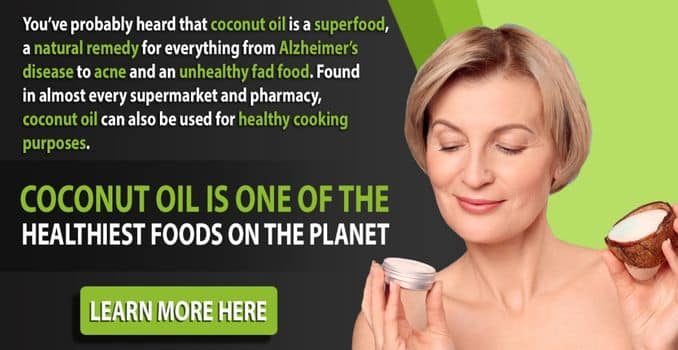
When we hear about coconut oil, the first thing that comes to mind is virgin coconut oil which is getting more popular because of its health benefits. While it has so many benefits, it is still confusing to which type they belong. We will discuss below the benefits of Unrefined Coconut Oil.
Understanding The Terms
-
Raw
Raw generally means that food is not processed. Heating the oil to a temperature higher than 96 degrees Fahrenheit destroys natural enzymes. Therefore, the oil has never been heated to a temperature higher than 96 degrees Fahrenheit. People seek raw food because less processing means a higher nutrient content.
-
Unrefined
Normally, people consider unrefined as a virgin, and it varies in its light coconut taste and aroma from brand to brand. This mostly depends on the freshness of the coconut used and the processing it was subjected to.
-
Refined
Refined possess no coconut flavor or aroma. Producers make them from dried copra, not fresh coconuts, and they typically subject the oil to various processing levels, including deodorization and bleaching.
-
Cold-Pressed
The manufacturers press cold-pressed coconut oils in a heat-controlled environment to maintain temperatures below 49ºC or 120ºF degrees. Cold pressing does not designate what type of pressing machine is used. Oil producers should not expose cold-pressed oil to high heat before or after pressing.
-
Centrifuged
The coconut oil undergoing this process is generally one of the purest and most expensive. In this process, people shell, crush, and grind coconuts into a slurry. First, extract the milk from the meat and then place the remaining coconut in a high-speed centrifuge that rapidly spins the contents. Moreover, the spinning process separated the oil from the meat. Centrifuge coconut oil retains a strong coconut taste and smell and requires no further refining.
-
Expeller-Pressed
Usually, people use this mechanical process to extract oil from seeds and nuts at high pressure and heat, and it is for refined oils.
What Is An Unrefined Coconut Oil
People know unrefined coconut oil as virgin coconut oil and consider it the purest version of coconut oil that one can obtain. Cold pressing is used to extract the oil from a lump of fresh coconut meat without applying any heat. One removes the outer husk of a matured coconut, which yields more oil than young coconuts, and presses it slowly to extract the oil. This process allows for maintaining the delightful, tropical flavor of a regular coconut, making it a great option when you want your cooking and baking to have a hint of coconut taste.
Nutrition Facts
For every 1 T serving of coconut oil, you will get:
- Calories 104
- Protein 0 grams (g)
- Fat 11.5 g
- Saturated fat 9.6 g
- Carbohydrates 0 g
- Fiber 0 g
- Sugar 0 g
This is similar to other oils. For instance, 1 tbsp of olive oil has 119 calories and 13.5 g of fat.
Benefits Of Unrefined Coconut Oil
Unrefined coconut oil minimally undergoes processing, making it an excellent choice for individuals attempting to incorporate more unprocessed foods into their diet. If you’re a fan of coconut flavor, unrefined coconut oil adds a bit of that taste and scent to your food and beverages. Unrefined coconut oil is also a great alternative to MCT oil, sometimes used to make bulletproof coffee.
Here are other benefits of unrefined coconut oil:
1. Fat-Burning
Coconut oil has beneficial fats. This may help reduce levels of LDL cholesterol (the bad kind), increase levels of HDL cholesterol (the good kind), fight inflammation, reduce the risk of cognitive decline, support immune function, boost metabolism, and help you burn fat in the abdominal area.
2. Immune Boost
Unrefined coconut oil helps fight inflammation, harmful bacteria, parasites, viruses, and fungi to boost the immune system.
3. Cognitive Enhancers
Medium-chain triglycerides (MCTs) are naturally high in coconut oil, which provide cognitive benefits by supporting brain function and focus. The body can easily digest them, allowing it to use them for energy rather than storing them as fat. This creates a thermogenic effect that may positively affect metabolism.
4. Anti-Bacterial/Fungal
Coconut oil contains high levels of Lauric acid, which helps in controlling bacterial and fungal infections. Once we ingest lauric acid, our body converts it into monolaurin acid, which can help us control viral infections in our system.
Beneficial For Oral Health
Studies are showing the benefits of using coconut oil as a mouthwash — a process called oil pulling — cost-effectively benefits oral hygiene. Oil pulling involves swishing coconut oil in your mouth like mouthwash. Compared with regular mouthwash, it may significantly reduce the count of harmful bacteria in the mouth — namely S. mutans. This might be due to the high concentration of Lauric acid found in coconut oil as an antimicrobial. When lauric acid in coconut oil reacts with saliva, this forms a soap-like substance that prevents cavities and helps reduce dental plaque buildup and gum inflammation.
Antioxidant
Another health benefit of coconut oil is a good source of antioxidants, which help neutralize damaging molecules called free radicals.
Some of the main types of antioxidants in coconut oil are as follows:
- Tocopherols
- Tocotrienols
- Phytosterols
- Flavonoids
- Polyphenols
Antioxidants in coconut oil confer potential anti-inflammatory and brain-protective effects. And people choose to include coconut oil in their diet because it suits their dietary preferences and the wide array of benefits they can get.
When To Use Refined And Unrefined Coconut Oil
While it has great health benefits, refined and unrefined coconut oil can be used in many other ways.
1. Baking
Both refined and unrefined coconut oil can be used in baking, and it’s often used as a vegan-friendly substitute for butter. Depending on the recipe, you may or may not want the scent and taste of coconut.
2. Cooking
Coconut oil can be used in the kitchen. Refined coconut oil is better for frying since it can withstand higher temperatures. Meanwhile, unrefined coconut oil can be used for sautéing. Unrefined coconut oil’s strong coconut taste makes it suitable for use in other savory recipes like curry or soup where one would want the flavor.
3. Hair And Skin
Coconut oil can also be good for the skin. Unrefined, cold-pressed coconut oil is a great choice for the skin and hair as it contains more nutrients than processed coconut oil. Coconut oil can act as a moisturizer thanks to lauric acid, which has great antibacterial and antimicrobial benefits.
Takeaway
The health benefits of coconut oil are becoming quite popular whether to add to your diet or use as a cosmetic. However, there are still contradicting results as to whether it is really beneficial or the other way around. Consumption should still be in moderation despite the claims to avoid increasing the risk of heart disease. A well-balanced diet should still be incorporated to get maximum health benefits.
Get this Coconut Oil Guide to discover the amazing ways you can use this powerful oil to improve your health and your life!





